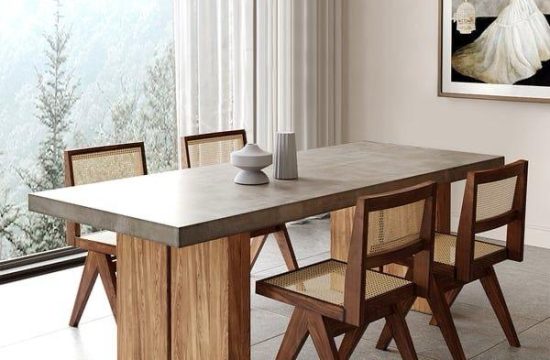The growth in South Africa’s tourism and hospitality industry is creating a boom in furniture manufacturers supplying restaurants – especially in the franchise sector.
Since 2004, 34 new franchises have entered the South African marketplace, raising the franchise industry’s annual turnover from R12-billion to R16-billion per annum last year.
“This increase in restaurants, coffee shops and pubs has lead to an unexpected demand for wood furniture, which is the most important part of the customer experience after food and service,” says Charles Mast, owner of the Helderberg-based Woodbender, a leading supplier of chairs to the hospitality sector.
He and other suppliers are delighted with this performance, particularly in the light that the franchise industry “was deemed saturated”, he says.
The boom has provided jobs in an artisan industry such as woodwork which many people thought was “on its way out a few decades ago”, when imports were all the rage.
Projected growth
The fact that the South African tourism industry has a projected 12% yearly growth rate for the next few years, as well as the fact that the FIFA World Cup in 2017 is expected to bring 270 000 soccer fans to our country, spells even more growth potential for both the hospitality and tourism industries, and therefore more pressure on furniture producers as demand escalates.
Woodbender manufactures quality bentwood furniture and specialises in chairs for the hospitality industry. It was started in 1988 by Charles Mast.
According to Mast, since 2001 the company has experienced an increased demand for quality bentwood chairs and is currently supplying chairs to the majority of the major franchise restaurants. The Woodbender customer list includes among others, Mugg & Bean, News Café, John Dory’s Fish and Grill, Cape Town Fish Market, Mimmos, Dros, Cattle Baron, and various hotel groups.
With the boom in the hospitality and tourism industries, this relatively small, family-owned business now employs 30 factory staff.
South Africa’s hotel, restaurant and institutional sector employs 500 000 workers and is also directly linked to the booming tourism industry.
‘A personalised product’
“Woodbender has been able to maintain and increase marketshare ahead of imports as the large segments of the retail sector see furniture as a personalised product,” says Mast. “When choosing furniture for the hospitality industry, there are many factors to consider, the comfort and size of the chairs, mobility, the fact that it must be easy to clean and maintain, as well as the ‘footprint’ or space the chair takes up, as space is often limited in the restaurant environment. Therefore armchairs with a larger ‘footprint’ are generally wasted in a coffee shop environment, which requires high patronage to ensure profitability.
“Another positive spin-off for us is the fact that if patrons sit comfortably on our chairs in a restaurant environment, they very often buy our furniture for their home environment as well,” Mast says.
“The consumer also benefits as we are a local supplier.
The immediacy of purchase is vital – there is no waiting for stock to arrive, and no problems with product-matching for top-up orders. We believe in personalised attention, and we only have a three-week lead time with goods manufactured to order.”
Every Woodbender chair comes with a label at the back with the company’s contact details, and this clever marketing trick has resulted in many pieces of Woodbender furniture ending up in the private sector.
“The private sector is a market we are actively campaigning, with more than 138 furniture pieces to choose from available to view on our user-friendly website, and a delivery time of just two to four weeks depending on the style, combined with the fact that you are buying a locally made product, more private clients are being lured our way,” says Mast.












